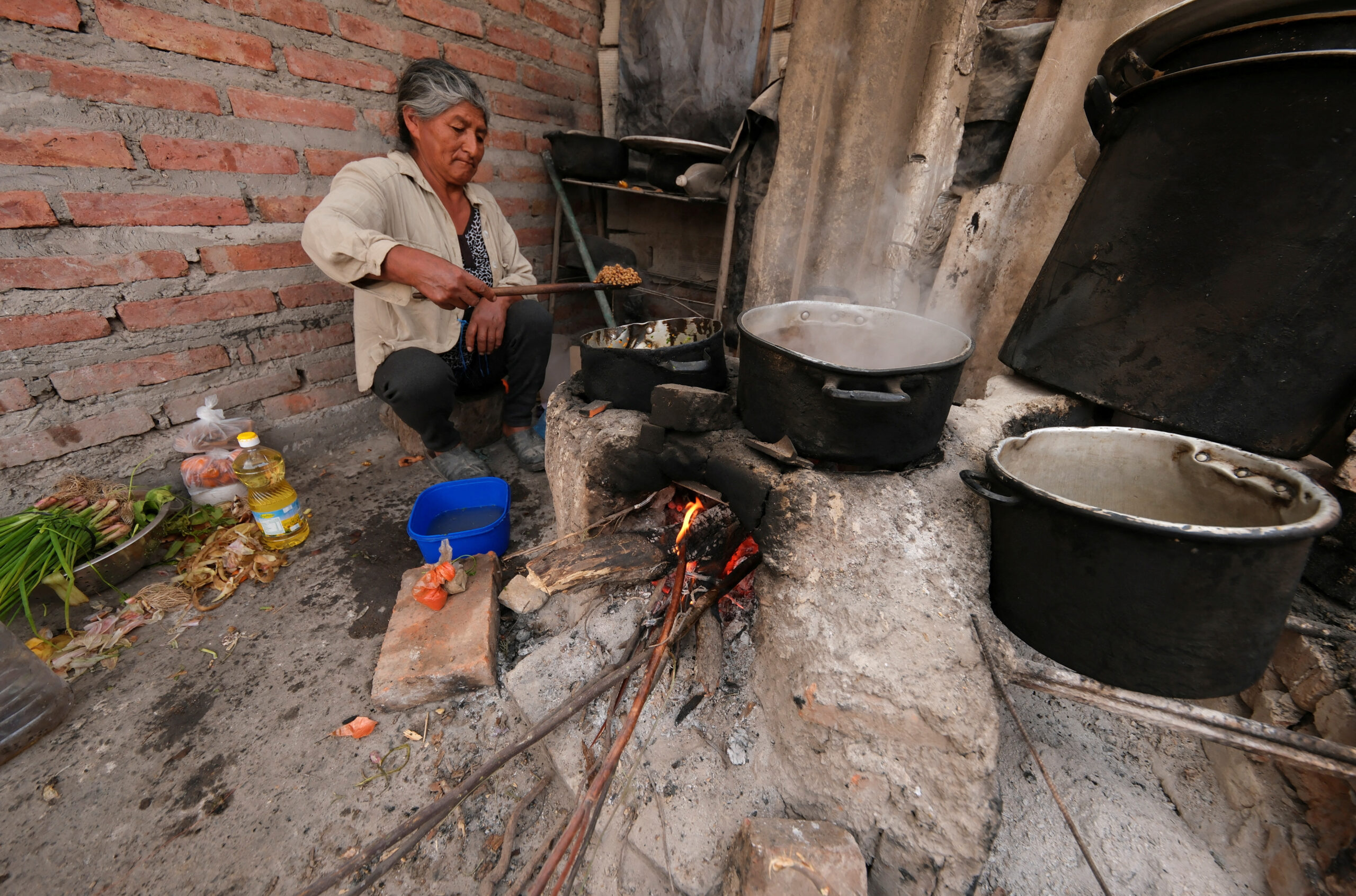
A food disaster happens in Argentina’s poor barrios
As poverty grows in Argentina’s poor barrios, a food emergency is happening. Malnutrition is on the rise, and doctors are treating kids for eye diseases and even scurvy that are linked to not getting enough vitamins.
Over half of the people in this resource-rich South American country live in poverty, and about seven out of ten children are among them. This is because of years of recessions and high prices.
In the past few years, food poverty has gotten a lot worse. This problem is getting worse because of President Javier Milei’s strict austerity campaign. His new government has cut billions of dollars in spending as part of a “zero deficit” plan to fix the economy, which is in bad shape.
Last week, government numbers showed that 53% of people lived in poverty in the first half of the year. This is up from about 42% at the end of last year. 18% of people are living in extreme poverty, which means that their family income is not enough to meet the cost of a basic food basket.
Mom of three Silvina Rizo lives in a shantytown outside of Salta in the rocky north of Argentina. “Sometimes I don’t have enough food to feed (my kids),” she said.
Rizo said she cooks with wood now because she can’t afford gas for the stove. The wind and rain that rattle the tin roof and plastic bag walls scare her smallest daughter to death.
“The neighborhood floods when it rains.” Rizo asked, “Where am I going?” “I don’t have a place to take my kids.” It costs a lot to rent.
Almost twice as many Argentines (36%) don’t have enough food to eat as seven years ago, according to a study released this year by the UN. Every day, a million and a half kids miss a meal, and as food prices have gone up, they are getting less healthy foods like meats and vegetables.
A nutritionist for kids named Norma Piazza said, “We are seeing cases of scurvy and cases of eye injuries due to Vitamin A deficiency, with corneal injuries.”
“These things existed in Central America, Africa, Asia, but we had never seen patients here who had eye lesions due to a lack of vitamin A.”
She said that some kids were being admitted with brain problems and seizures when the only problem was a lack of vitamins like B12. This was because they weren’t eating enough meat in a country that has long been proud of its beef-heavy diet.
A “food emergency” has been declared by the Milei government, which took office in December 2023. It says that in response, it has raised payments for some welfare programs, such as food cards and the universal child income.
The Secretariat of Childhood, Adolescence, and Family told Reuters in writing, “Due to the food emergency, our top priority is for people to get help with direct transfers, which puts money in their pockets.”
The government also says there are signs that things are getting better. The Catholic University of Argentina says that poverty reached its highest point at the beginning of the year and has been getting better since then. Even though inflation is going down, it is still high (in the triple digits) every year.
Last week, the office of the president said that the high rate of poverty was “horrendous” and that it was doing everything it could to fix the problem, which it says is caused by decades of bad economic management and overspending by major political parties.
HELP STOPPED RIGHT THERE
Milei, who is not in politics and used to be an expert on the economy, often used a hatchet as a crude way to show how he planned to cut the size of the state.
His government has cut off funding to some soup kitchens because it thinks they are ineffective or even scams. This has been criticized by aid groups and religious groups that say the kitchens are very important for making sure the poor are fed. A lot of them have stopped or had to cut back on meals.
Food insecurity in Argentina has “increased alarmingly” over the past few years, according to a study released in September by the UN Committee on the Rights of the Child. The “negative impact on children” of the cuts to community kitchens was used as an example.
“As of December of last year, the national government stopped giving any help at all,” said priest Adrian Bennardis in the poor area of Villa Soldati in Buenos Aires. “It breaks my heart to know that out of 10 kids, seven are below the poverty line… and that a part of society does not want to see it.”
Even after years of trouble, a lot of Argentines still back Milei’s tough medicine changes. But his popularity has begun to drop, and some of those who are hurting are angry. Angel Arce, 32, is angry and out of work because he had to send his son to live with family because he couldn’t afford to take care of him.
“Everything got worse under this ruler. He said, “Either the poor or the soup kitchens don’t get anything anymore.” “I want to be with my son, and I can’t.”
LESS MEAT AND MORE RICE
Maria Benitez Osorio, 36, works in a soup kitchen in Villa Soldati. She said that customers wanted her food more, but money was tight, so the meals were “deteriorating.”
“We try to serve more rice and noodles since that’s what we have the most of.” “We don’t have much meat or chicken,” she said as she stirred a big pot of stew for neighbors who were lining up at the door on a cold spring day.
In Villa Fiorito, the poor area where soccer star Diego Maradona was born, 32-year-old Cynthia is malnourished, which is made worse by the fact that she is missing a kidney and a lung.
Her bed was under a metal roof with holes in it, so when it rains, water drips through it. “I don’t have enough food,” she said. The room is shared by her two kids, a mother and a sister. “The soup kitchen said they can only give food one day a week.”
Diets that are low in zinc and some vitamins can slow growth and make you more likely to get sick. On the other hand, cheaper carbs are linked to more obesity, which is becoming more common in Argentina.
Sergio Britos, a nutritionist and the head of Argentina’s Center for Studies on Food Policies and Economics, said, “It’s clear that the food poor kids in Argentina are eating is getting worse.”
He said that about 10% of Argentine children under 5 were hungry. This number has been slowly going up over the past few years as food prices have gone up.
A pediatrician in central Cordoba province named Susana De Grandis specializes in child nutrition. She said that cases of diseases like scurvy and eye diseases that are linked to bad diets were a “warning” sign.
“We hadn’t seen scurvy in a long time, maybe even decades.” “It is very rare to see diseases in Argentina that are caused by not getting enough vitamins,” she said.
“We take these cases as markers of a serious situation because we hadn’t seen them before.”
All Categories
Recent Posts
Tags
+13162306000
zoneyetu@yahoo.com


